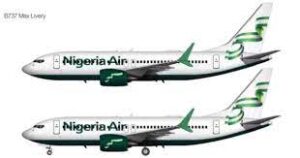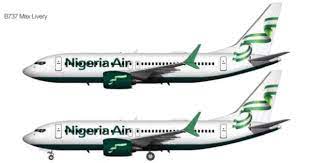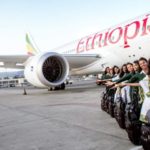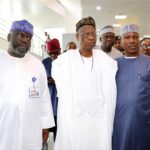
There is likely not going to be a national carrier operating scheduled domestic service by May 2023, even when the paperwork for a new government-backed airline may have been concluded.
Optimists in the aviation industry who are nostalgic about a new national carrier would say that nine months is enough to midwife a national carrier, but pragmatists would insist that if the procedures are followed according to 2006 Civil Aviation Act, as amended and all other regulations abided to, nine months would not be enough to establish a national carrier, considering the level of work already done to actualise the project.
This is the regular debate in the aviation sector about the new national carrier being spearheaded by the President Muhammadu Buhari’s administration, known as Nigeria Air. It is nine months to the end of the administration, when he vacates office on May 29 next year. So far, the planned national carrier has obtained Air Transport Licence (ATL), which is a forerunner to Air Operator Certificate (AOC).
But many in the industry are still bewildered that an administration that has two tenures of four years each, is still struggling to actualise a national carrier project at the twilight of its second tenure.
The long-term gestation has bred cynics who doubt the sincerity of the project and many of them hope they would be proved wrong at the end of the day. Being wrong means a new carrier would be born, new jobs created and more capacity added to existing aircraft fleet in Nigeria. But as they struggle to be sanguine, doubts still lurk in the dark corners against hope, considering the opaque process, as people yearn to have a glimpse of what stage of the project government is in.
THISDAY on Tuesday requested update on the national carrier project from the Advisor to the Minister of Aviation, Professor Tilman Gabriel. THISDAY wanted to know the timeline for the project, whether there was already a core investor and whether the promise that the airline would take to the sky before end of this year still holds.
Media Adviser to the Minister of Aviation, Dr James Odaudu explained to THISDAY that the team driving the project had secured approval for the lease of the aircraft for the new airline and the next stage would be to obtain AOC from the Nigerian Civil Aviation Authority (NCAA).
Scepticism
Top industry stakeholder told THISDAY in a telephone interview that if the federal government behind the national carrier project would follow the process of obtaining operator’s certificate the way the procedure is laid down in the Nigeria Civil Aviation Regulations (NCAR), nine months would not be enough to obtain AOC, which would enable the airline to start operation.
But if the process is circumvented because government is behind the project, the airline could begin to operate without proper foundation, which would not be good for the airline because without such foundation it would not be able to operate for a long time.
There have been efforts to establish a national carrier in the past and it followed the same short-cut process and the airline never airlifted passengers from any airport to another and went under even before the administration that established it left office.
“They have already obtained Air Transport Licence. They will have to do demo flights before they obtain AOC. There is no crew yet for cabin and cockpit. They will have to train them,” Odaudu said.
Leased Aircraft
The industry stakeholder also told THISDAY that it is illegal to use foreign registered aircraft to start commercial airline in Nigeria, noting that wet leased aircraft would come with cabin and cockpit crew, which means Nigerians would not be employed for those positions and this is a national carrier. So the airline must start flights with Nigerian registered aircraft if it must abide by the regulations that guide operations in the industry.
“It will be fine if the airline starts operation with Nigerian registered aircraft. It is illegal to start operations with foreign registered aircraft. Part G of the operations specification allows airline to bring in aircraft with crew for about six months and after that the airline may renew for another six months by changing the crew and carrying out other procedures.
“But if they will use aircraft registered in Nigeria they will have to train their crew. They will also carry out demo flights. It is highly unlikely that the airline will obtain AOC within this short time if it follows the regulation procedures without cutting corners. It is highly unlikely that the new airline will start operation before May 29, 2023 without shunting the processes. They will have to bring the aircraft, paint the aircraft in its own livery. This will take time. I believe they will finish the paper work and leave the actual establishment of the airline for the in-coming government. It will be at the discretion of the new government to decide whether to continue the project or not. This will be a waste of government funds to try to establish the airline hurriedly. Nigerians want a national carrier that is sustainable without government intervention. What it needs is government sovereign guarantee,” he said.

Core Investor
THISDAY investigation has also revealed that so far government has not zeroed on any investor yet. So government is driving the whole process. Industry expert and the Secretary General of Aviation Round Table (ART), Group Captain John Ojikutu, had wondered why government alone is driving the process and at the same time it claims that it would have only 5 per cent stake and core investor would have over 40 per cent.
Ojikutu told THISDAY: “I have my doubts about the airline, except we are banking on a government carrier and not a national carrier. We were told the carrier would include foreign technical partners/investors 40 per cent; Nigerian investors 30 per cent; Nigerian public 25 per cent and Federal Government 5 per cent. It is the shareholders of 5 per cent we are hearing from daily; where are the major shareholders of 40 per cent, 30 per cent and 25 per cent? They no de talk? By the way, what is the share capital? What contributions are we expecting from the various shareholders?”
Other informed source told THISDAY that it would be difficult for Nigeria to secure a core investor for the national carrier, considering Nigeria’s fiscal environment, which he said was not encouraging.
“How do you talk about core investor when airlines’ half billion dollars is trapped in your country. How is the core investor going to have a return on his investment if money earned from simple ticket sales cannot be repatriated? How do you think he can repatriate his investment?” the source questioned.
The informed source also told THISDAY that after the bidding for the core investor, the Ministry of Aviation promised to open the bid but it has not done so “because the investors that won the bid might have changed their mind because of recent developments.”
“I know that many bided including airlines from Europe but my fear is that if the big airlines that indicated interest like Qatar Airways and Ethiopian Airlines have changed their minds, government may just go and get these small airlines from Europe out of desperation. It will be like, let’s just bring in anybody and let it do this, since the airline that won may have declined,” the source said.
Investment
A former Managing Director of a major airline told THISDAY that any company that chose to be the foreign partner and core investor in the new airline should be looking to invest about $200-$300 million as initial take off capital. This is because the investor has to bring in aircraft, open offices, budget for ground operations. The investor must have money to sustain the new airline from 18 to 24 months.
The Managing Director of Flight and Logistics Solutions Limited, Amos Akpan, said there was need for a national carrier but the existing airlines should be given equal opportunity and there should be a level playing field for all airlines.
He also express doubt that national carrier, Nigeria Air would start operation before end of the current administration if it would follow the laid down process for the establishment of commercial airline in Nigeria.
“Should there be a national carrier? Yes. But the existing private airlines should be given equal platforms to operate including designations on international routes, access to forex and other opportunities. Will Nigeria Air start flight operations before this administration ends? From what we are seeing now, it will not start flight operations. If they force it to start flight operations, it won’t survive in the prevailing economic environment,” he said.
Akpan also remarked that it would be bad to raise people’s hope and disappoint them as soon as this administration’s tenor ends in eight months, noting that the foundation required to build a sustainable national carrier is glaringly not laid.
“Where then will the structures for sustainable Nigeria Air be laid upon? Where are the offices of Nigeria Air? Where is and who are the management team? This team should have been presented to NCAA by now; at least during Pre-application Statement of Intent (PASI) meetings. Who are the investors? How much is their equity investment? How much is the federal government’s 5 per cent? Where are the aircraft? Certainly not the proposed wet leased aircraft? What about the jobs for Nigerians?
“In my opinion, the government may use its might to start flight operations against the odds, but the airline will not survive because the circumstances are not right. Finally, it is the prerogative of the government to ensure the project is successfully implemented,” Akpan said.
Level Playing Field
There are doubts that government would allow equal opportunities to both national carrier and other operators in the industry. This is the reason why existing airlines are apprehensive about the national carrier. In fact, aviation experts have posited that national carriers are money guzzlers in Africa because governments tend to throw money at them. Former Director-General of Airport Council International (ACI), Angela Kittings, once told THISDAY that national carriers epitomize inefficiency because governments that established them try to protect them and do not allow them compete equally with other airlines. They are given incentives and due to such preferential treatment they become inefficient and that explains why many government-owned or airlines that have government investment do not do well in the continent.
Even before starting operation, the Nigeria Air is already enjoying such preferential treatment.
Few months ago THISDAY authoritatively learnt that the federal government might have reserved the entire old terminals at the international wing of the Murtala Muhammed Airport (MMA), Lagos and the Nnamdi Azikiwe International Airport (NAIA), Abuja to the planned national carrier, Nigeria Air.
The plan was that when majority of international carrier may have relocated to the new facility, the new airline would be using the old terminal, reminiscent of the defunct Virgin Nigeria Airways and Arik Air, which started their operation at the international terminal in Lagos.
Aviation Ministry source told THISDAY that the airline would operate its entire local operations from the international wings of the two terminals in Abuja and Lagos.
Airline Operators of Nigeria (AON) had alleged that there is no equal playing field. A document signed by the 10 indigenous scheduled airlines under the auspices of Airline Operators of Nigeria indicated that the carriers were against the reservation of the two international terminals for the airline.
AON in the document alleged that there was no level playing field for the operators with the planned dedication of the two terminals solely for Nigeria Air.

The document read: “It is sad to note that AON has become aware that privileged rights have already been allocated to the proposed carrier. A situation where the old international terminals in Lagos and Abuja are being proposed for the national carrier to operate from clearly shows that there is no level playing field in relation to domestic airline investors that have been keeping the industry active and driving the Nigerian economy for over two decades. There is a serious and urgent need for a public debate on the need for a national carrier and the processes to be adopted to bring it to birth. Regrettably, this has not been done as Nigerians and various relevant Ministries, Departments and Agencies (MDAs) are still kept in the dark about the project.”
Many Nigerians are expectant and hopeful that one day, the planned national carrier will become a reality.
THISDAY






